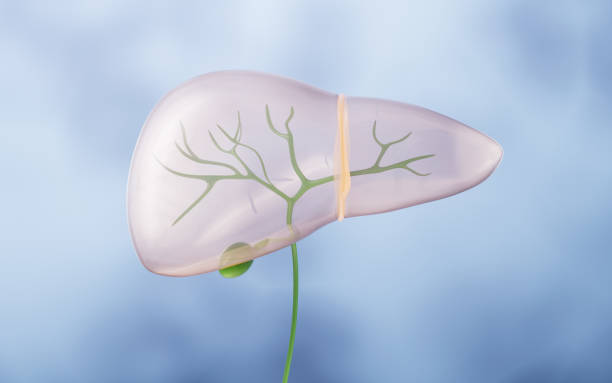
Gallbladder pain is a common condition caused by various underlying issues related to the gallbladder, a small organ located beneath the liver.
The gallbladder’s primary function is to store bile produced by the liver to help digest fats. Gallbladder pain can range from mild discomfort to severe, sharp pain, and in some cases, it may signal the need for medical intervention. Understanding the causes, symptoms, and treatment options can help individuals manage and seek proper care for gallbladder-related pain.
What is Gallbladder Pain?
Gallbladder pain occurs when something disrupts the gallbladder’s normal function, causing discomfort or sharp pain in the upper right part of the abdomen. The pain may radiate to the back or shoulder blades and can be accompanied by nausea, vomiting, and digestive issues. The severity of gallbladder pain can vary depending on the underlying cause.
Common Causes of Gallbladder Pain
-
Gallstones: Gallstones are hardened deposits of bile that form in the gallbladder. These stones can block the normal flow of bile, leading to inflammation, infection, or intense pain known as a “gallbladder attack” or “biliary colic.” The pain usually comes on suddenly, typically after consuming fatty foods, and can last for several minutes or hours.
-
Cholecystitis: Cholecystitis refers to the inflammation of the gallbladder, often caused by gallstones blocking the gallbladder’s ducts. The blockage leads to the buildup of bile, causing irritation and swelling. This condition can result in severe pain, fever, and tenderness in the upper abdomen.
-
Gallbladder Sludge: Gallbladder sludge is a mixture of cholesterol crystals, bile salts, and other substances that can accumulate in the gallbladder. While it doesn’t always cause pain, in some cases, it can lead to discomfort or blockage, resulting in gallbladder pain.
-
Choledocholithiasis: This occurs when gallstones move from the gallbladder into the bile duct, blocking the normal flow of bile. This can cause pain, jaundice (yellowing of the skin and eyes), and even pancreatitis.
-
Biliary Dyskinesia: Biliary dyskinesia is a condition in which the gallbladder does not function properly, either by not releasing bile efficiently or by releasing it at the wrong times. This dysfunction can cause discomfort or pain, particularly after meals.
Symptoms of Gallbladder Pain
The symptoms of gallbladder pain vary depending on the underlying cause but typically include:
- Sharp, cramping pain in the upper right abdomen, just below the rib cage.
- Pain that radiates to the back, shoulder blades, or chest.
- Nausea and vomiting, particularly after eating.
- Indigestion and bloating, especially after consuming fatty or greasy foods.
- Fever and chills (in cases of cholecystitis).
- Jaundice (yellowing of the skin or eyes), particularly if the bile duct is blocked.
Diagnosis of Gallbladder Pain
To diagnose the cause of gallbladder pain, doctors typically perform a combination of physical exams, medical history review, and imaging tests. Common diagnostic methods include:
-
Ultrasound: This is the most common imaging test used to detect gallstones, inflammation, or any other structural abnormalities in the gallbladder.
-
CT Scan: A CT scan may be used if more detailed images are needed to assess complications related to gallbladder pain.
-
Blood Tests: Blood work can help detect signs of infection or inflammation, including elevated white blood cell count or liver enzymes.
-
HIDA Scan: This test assesses the function of the gallbladder by tracking the movement of a radioactive substance through the biliary system. It can help diagnose conditions like biliary dyskinesia.
Treatment Options for Gallbladder Pain
The treatment for gallbladder pain depends on the severity of the condition and its underlying cause:
- Non-surgical Treatment:
- Pain management: Over-the-counter pain relievers such as ibuprofen or acetaminophen may help alleviate mild pain. For more severe pain, doctors may prescribe stronger medications.
- Dietary modifications: Individuals with gallbladder pain should avoid fatty or greasy foods, which can trigger symptoms. A low-fat, high-fiber diet may help prevent gallbladder attacks.
- Medications for gallstones: If gallstones are the cause of the pain, medications may be prescribed to help dissolve the stones. However, this approach is less effective for large stones or chronic conditions.
- Surgical Treatment:
- Cholecystectomy: The most common treatment for recurring or severe gallbladder pain caused by gallstones or cholecystitis is surgery to remove the gallbladder. This procedure, known as a cholecystectomy, can be performed laparoscopically (minimally invasive surgery) or through open surgery, depending on the case.
- Endoscopic Retrograde Cholangiopancreatography (ERCP): In cases where gallstones are blocking the bile duct, an ERCP may be performed to remove the stones.
When to Seek Medical Help
If you experience severe or persistent gallbladder pain, especially if it is accompanied by fever, nausea, vomiting, or jaundice, it is important to seek medical attention immediately. Gallbladder issues can lead to serious complications, including infection, pancreatitis, or liver damage if not treated promptly.
Preventing Gallbladder Pain
While some factors, such as genetics, are beyond control, there are several lifestyle changes that can reduce the risk of developing gallbladder problems:
- Maintain a healthy weight: Obesity increases the risk of gallstones. Regular exercise and a balanced diet can help prevent weight gain and improve overall health.
- Eat a high-fiber diet: A diet rich in fruits, vegetables, and whole grains can help reduce the risk of gallstones.
- Avoid rapid weight loss: Losing weight too quickly can increase the risk of gallstone formation.
- Stay hydrated: Drinking plenty of water helps keep bile in the gallbladder in a fluid state, reducing the risk of sludge and stones.
Conclusion
Gallbladder pain can be a debilitating condition, but with early detection and appropriate treatment, most people can find relief. Understanding the causes, symptoms, and treatment options for gallbladder pain is crucial for managing the condition and preventing complications.
If you experience symptoms suggestive of gallbladder issues, consult with a healthcare provider for an accurate diagnosis and personalized treatment plan.



Leave a Reply